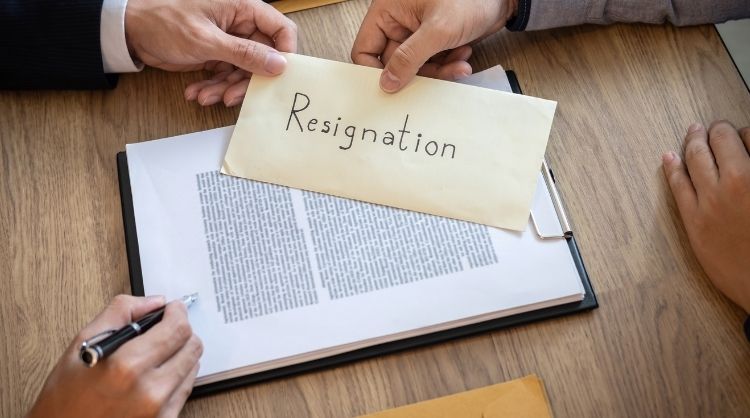How to write a resignation letter

So you’ve got a new job – congratulations! Now’s the time to write a resignation letter to inform your current employer that you’ll be wrapping up your employment with them. Maybe you’ve been looking to quit your job for a while, or you’ve been surprised by an offer from a competitor. Either way, you need to let the business you’re working for know.
However, it can be daunting to write a resignation letter, especially if you’ve never written one before. That’s why we’ve put together some tips on what you should include in a resignation letter, as well as what you’ll want to avoid when crafting your professional goodbye. After all, you want to leave a lasting good impression, not go out in a blaze of glory.
Why are resignation letters important?
Resignation letters are important as they serve as formal documentation. By sending a resignation letter, you’re providing the business with a date for which your employment is set to end, as well as your contact information if they need to contact you after your time with the business ends. While a phone call/Zoom meeting might seem more logical, a resignation letter is written proof of your intent.
If you’ve been working somewhere toxic, then a resignation letter is also a good way to politely and professionally outline any concerns that may have arisen during your time with the business. While you are unlikely to see whether the concerns you’ve raised get addressed, it’s an opportunity to give your employers honest feedback that current employees might not be able to give.
However, It’s important to note that a resignation letter shouldn’t be the be all and end all. When you’re looking to wrap up your employment, an exit meeting/conversation can go a long way to helping your employers understand why you’re leaving the business, as well as what your plans are for the future. In many cases, they’re looking to provide you with as smooth a transition as possible, so communication is key.
What to include in a resignation letter

The essential things you’ll want to include in a resignation letter are:
- A professional greeting to the person/s receiving the letter
- An acknowledgement of your intent to resign
- When your last day will be (this may need to be discussed beforehand)
- Your contact details
Ideally, you’ll be handing the letter to your employer after letting them know verbally that you’re looking to resign. Other things like your reason for resigning, your appreciation for the role and any other things you may want to say can be included, but as you’ll see in the next section, they’re often better said in your exit meeting. After all, HR will be using this letter to help manage your transition out of the business, so your resignation letter needs to be as clear as possible!
What should you avoid in a resignation letter?
You don’t want to burn any bridges when you’re writing a resignation letter. While it can be tempting to leave a less-than-stellar job behind with a parting shot or two, the reality is that as an employee you don’t want to risk severing any relationships, especially in industries where people are likely to know each other. After all, you can’t be sure that the new job will work out (which we’ve all learnt throughout the pandemic), so you need to keep your options open.
Criticising your colleagues in a resignation letter also isn’t a good look, even if they’re one of the primary reasons you’re looking to leave. After all, you want to write the resignation letter with the thought that you would be happy for anyone to read it, because you can never quite predict how people will react when they receive your resignation letter. Don’t write anything down that you wouldn’t be happy to tell someone to their face, otherwise it can have unintended consequences down the line.
Finally, don’t try and write a lengthy document that justifies your intentions. If it’s something that would be better discussed in an exit meeting, then leave it out of the letter. Writing a professional resignation letter that’s short, sharp and to the point is beneficial to all parties involved. Leave the thankyous for the exit meeting with your boss.
If you’re looking to take the next step in your career, or just looking for advice on how you can grow in the workplace, then Upskilled is here to help. Upskilled’s SkillsTalk blog contains a variety of articles designed to help you learn more about navigating the world of work, as well as showcasing different online courses you can complete if you’re looking to build your skillset in the workplace!


)
)

